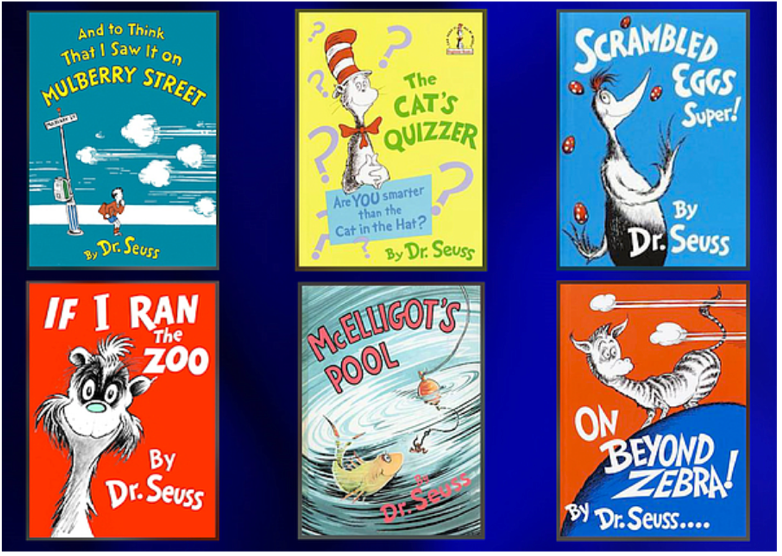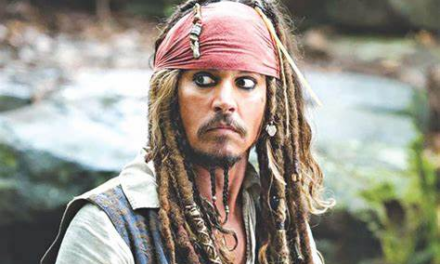Natalie Martini ’21, Managing Editor

If you ever owned a Mr. Potato Head doll, or read Dr. Seuss as a kid, then you were probably confused to read the recent pop culture headlines about their brand reevaluations. It is no secret that “cancel culture” has been increasingly apparent in today’s social environment. The recent news about Hasbro reinventing one of its most famous character toy brands, and six Dr. Seuss books being pulled from publication begs the question, has it gone too far?
Mr. Potato head is a well-known toy, most popularly known from the movie Toy Story (1995), and sold by the Hasbro toy company. Recently, Hasbro released a statement saying they were dropping the “Mr.” from the famous “Mr. Potato Head” name, in order to create a more inclusive representation of Potato Head characters.
This sparked a media frenzy, as people began posting and tweeting about the topic from a variety of perspectives. Some were annoyed and confused by this notion, questioning why the gender of a potato matters at all. They felt that the change was unnecessary, especially since children are not likely to pay attention to such a detail when playing with a plastic vegetable caricature. These individuals also seemed to fall under the category of those who were simply tired of changes being made to accommodate sensitive and easily offended customers or audiences.
Others were angered by the negative response to the initial tweet, stating that people should not be bothered by the minor change. Some even argued that it is a positive change for the LGBTQ community, offering a gender-neutral toy set. However, soon after Hasbro’s initial tweet, they posted another message claiming that “Mr. and Mrs. Potato Head” were not going anywhere, but rather they were simply renaming the logo and brand name to just “Potato Head”. While this tweet should have cleared up all the confusion, the angry tweets and posts continued, as the conversation turned political.

Like most subjects today, people will find political undertones to any online content and formulate cut-throat statements about why opposing viewpoints are toxic and/or offensive. Here, there was one side arguing the Potato Head controversy was a necessary change that would positively impact children and social culture, while others argued it to be a ridiculous marketing tactic that encouraged “cancel culture”, even for things that are harmless.
In contrast, a large portion of people felt the ongoing conversation itself was ridiculous. When it comes down to it, the company is simply rebranding their toy. Whether it is part of an agenda or not is irrelevant at this point, considering how harmless and minuscule the change on the box is, and also that there is remotely nothing different about the toy itself. It will still include a variety of pieces for the child to customize the doll however they wish to, which is the purpose of the toy, to begin with. Also, let’s not forget the most important part of all this; it is a potato. As many people have pointed out, this change, whether intentionally controversial or not, should not be relevant. The toy itself is not even one of the most popular among children today, and the only reason we are talking about it now is due to over scrutinization perpetuated by the media.
While not everyone has a memory of playing with Mr. Potato head as a child, most people can remember reading Dr. Seuss. In regard to this controversy, there are stronger opinions on the decision to stop publication of six of his books. According to The New York Times, these books are being taken down for racist, and outdated imagery. The books include, And to Think That I Saw It on Mulberry Street, On Beyond Zebra!, If I Ran the Zoo, McElligot’s Pool, Scrambled Eggs Super!, and The Cat’s Quizzer.
Many people were sad to see these beloved stories go. Most of us have grown up reading Dr. Seuss, and it is hard to believe his creative words and illustrations that captivated so many people would be considered offensive on some pages of his works. Personally, while I remember reading these books as a kid, I was never attached to Dr. Seuss as an author, and there is no nostalgia influencing my impression of this controversial topic.

It is evident how some of the images might spark controversy for the company to continue publication of what is described as stereotypical imagery, but I and many others were surprised to see some of the books that were part of the “canceled” list. The image in Mulberry Street that pushed it out of publication was a Chinese man illustrated with slanted eyes in an outdated outfit. Most Dr. Seuss fans do not even recall thinking about this image upon seeing it as a child, and do not feel this illustration had any influence on their perception of people within the Asian culture. This is the case for the cultures depicted in the other five books being taken down as well. Another example can be found in McElligot’s Pool, where the term “Eskimo Fish” is used in reference to fish dressed in fur. The issue here lies in the fact that “Eskimo” is an outdated term and should rather be “Inuit”. However, many people do not see how pulling this book and Mulberry Street from publication altogether is an appropriate response to these questions representations.
Some individuals found the decision to be a positive, progressive one in eliminating outdated themes among certain cultures, and possibly offensive depictions of certain ethnicities. In If I Ran the Zoo, there is an image of two native people in what is supposed to be Africa, wearing grass skirts. While this image does appear to be a stereotypical depiction of people from Africa, drawn in an offensively illustrative way, one could argue that it presents an opportunity for parents or adults to create a conversation about cultural portrayals, and point out what makes the image hurtful or offensive. While a picture like this would never be printed in a book today, it evidently was at one point, and it is important to acknowledge how we have progressed as a society, and what makes this image so outdated. This could be applied to the Chinese man image from Mulberry Street, as well as the Middle Eastern depictions in If I Ran the Zoo, and On Beyond Zebra!.

Dr. Seuss is known to be a very abstract illustrator, and his characters are
often dramatized for the sake of his nonsensical stories. This is how many people view these exaggerated depictions in his books. Most of the time, his stories hold an important message for children, such as The Lorax, with themes about taking better care of the planet, or Horton Hears a Who, about treating everyone equally, with the famous statement, “a person’s a person, no matter how small.” While some of the illustrations may be outdated and stereotypical of certain cultures, and it is right to acknowledge this, the intention behind these books was not to offend anyone, but rather to act as a fictional world for children to explore through reading.
The controversy remains whether it is worth stopping publication of these books altogether, or if there is a better solution being ignored here. Some argue it makes more sense to address these outdated images and communicate that among children and adults upon reading the books, to accomplish a more progressive mindset as a society. Others feel they could have altered the illustrations themselves to be more suitable for a modern audience, rather than take the books away completely.
Still, many feel that there is no change needed to be made at all. The books are reflective of the time period in which they were published, and while they may not be culturally accurate, they should not be taken down for being a product of their time. It would make more sense to ban them from schools, or libraries that prefer not to be associated with those types of portrayals, but to end their publication altogether seems ignorant for any book. There is something to be learned from controversial topics, and to eliminate these books entirely takes away that opportunity.

It is surprising that with all the children’s movies and old cartoons running the same type of “outdated” imagery, there are not more works being banned or censored. Many worry that this book-banning is an indication of where we are heading with “cancel culture”, and that soon enough there will be more content pulled from our reach. It is important to keep an open mind about progressive attitudes, but by eliminating all controversial content, there is no teaching moment. Sometimes letting the surface of the sensitive topic show is better than burying them, as it creates a more comfortable atmosphere for children and adults to talk about it.
While “cancel culture” is not as serious as some people make it out to be, it is worth discussing from time to time, and can create a platform where we can establish our own priorities within society. While the Mr. Potato Head controversy still remains to be a silly topic covered across the media, the response to racist themes within Dr. Seuss books holds more potential in contributing to a productive conversation. Both topics are essentially the result of companies trying to protect their brand, and the rest is all media frenzy.





